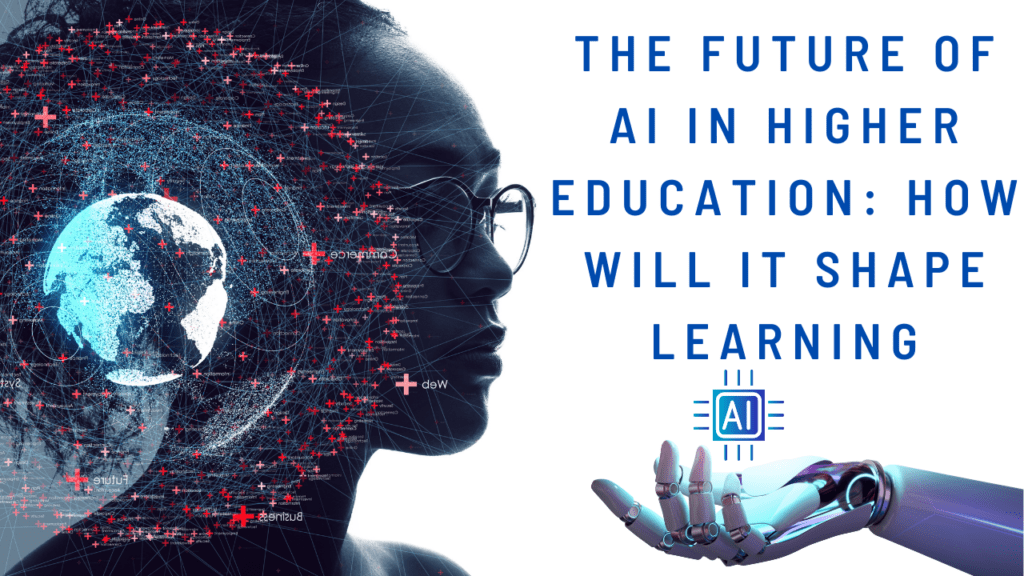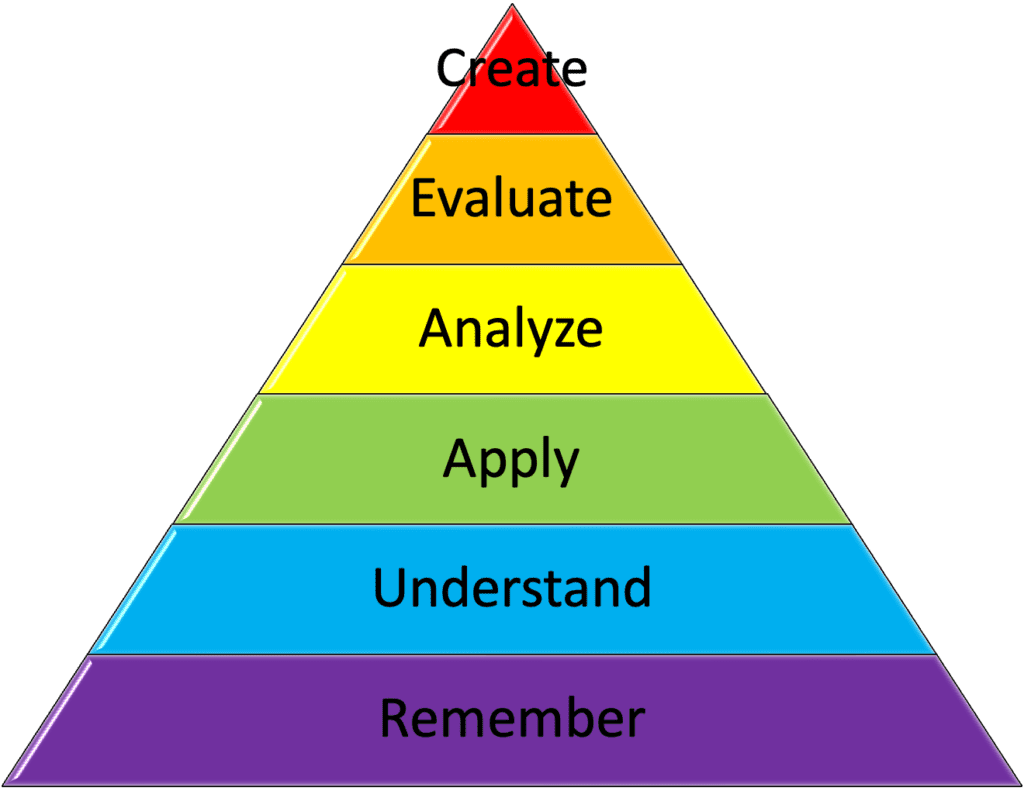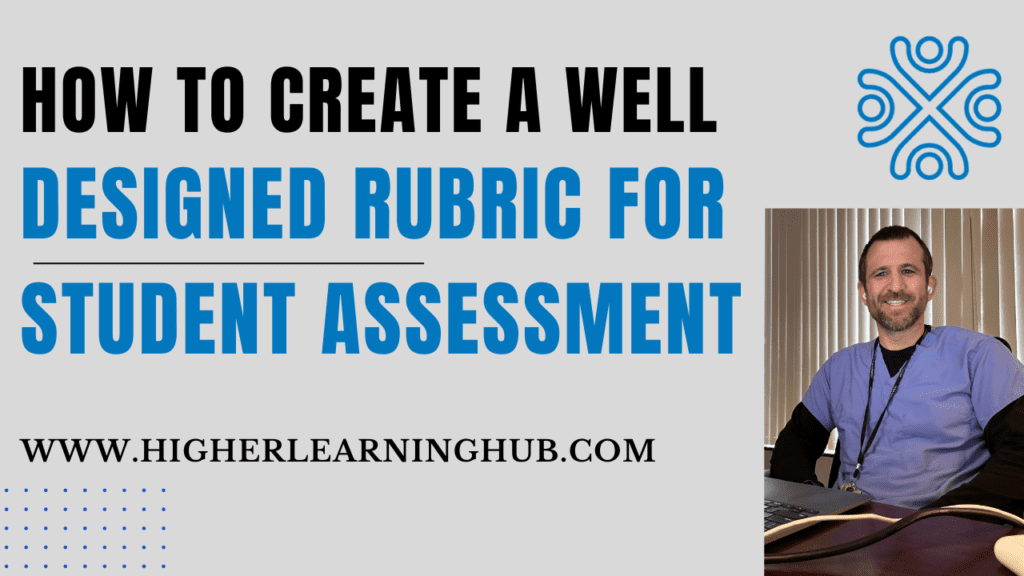Authored by Dr. Leland Jaffe; Associate Professor and Dean; Published on November 17th, 2024
Artificial intelligence is rapidly transforming how we interact with our world, making significant strides in fields like healthcare, finance, and now, education.
As AI technologies advance, their influence on higher education promises to be profound. From personalized learning experiences to streamlined administrative processes, AI stands to redefine the educational landscape. This post explores how AI might impact teaching, reshape learning experiences, and optimize administrative tasks in higher education. Whether you’re an educator, student, or administrator, understanding these changes is important as we move into this new era. How prepared are we to embrace AI in our academic institutions? Let’s find out.
Transformative Changes to Teaching Methods
Artificial intelligence (AI) is set to redefine education in profound ways. Traditional methods are being superseded by innovative AI-driven approaches, aiming to cater to diverse learning needs. This section delves into how AI can transform teaching, making education more effective and personalized.
Personalized Learning Experiences
AI tailors education to individual learning styles, fostering a more effective educational environment. Instead of a one-size-fits-all approach, AI systems analyze data to identify each student’s strengths and weaknesses. Through adaptive learning platforms, students receive content suited to their personal pace and learning style. Imagine a math lesson that dynamically adapts based on a student’s comprehension speed. According to Forbes, AI is revolutionizing education by tailoring experiences to individual needs, thereby amplifying student engagement and outcomes.
- Adaptive content delivery: AI customizes lessons, ensuring they align with each learner’s unique learning style.
- Real-time feedback: Students receive instant insights and corrective measures, promoting continuous learning growth.
For a deeper dive into how AI personalizes education, you can explore this eLearning Industry article.
AI-Driven Tutoring Systems
Intelligent tutoring systems harness AI to offer personalized educational experiences. These systems simulate a one-on-one tutor, providing students with real-time guidance and feedback tailored to individual abilities. Such systems are especially beneficial in subjects requiring close interaction, like math or language learning. By using algorithms to adapt to student responses, these tutors become an indispensable part of personalized education.
- Enhanced learning: AI adapts content to suit individual learning needs.
- Timely interventions: Students receive immediate support on challenging topics, enhancing learning efficacy.
To learn more about how intelligent tutoring systems are transforming education, check out this article from Princeton Review.
Enhancing Engagement through Interactive Learning
AI’s ability to foster engagement through interactivity is unparalleled. By introducing elements like gamification and adaptive learning platforms, AI makes learning not only educational but also entertaining. Gamified learning introduces competition and incentives, while adaptive platforms ensure content remains relevant to the learner’s progress. This keeps students in tune with their educational journey.
- Interactive modules: AI creates engaging lessons through quizzes and games, fostering a deeper connection with content.
- Adaptive challenges: Tasks that adjust in complexity as students advance, ensuring continuous interest and motivation.
For further reading on how AI enhances engagement, check out this Digital Promise article.
Revolutionizing Administrative Processes
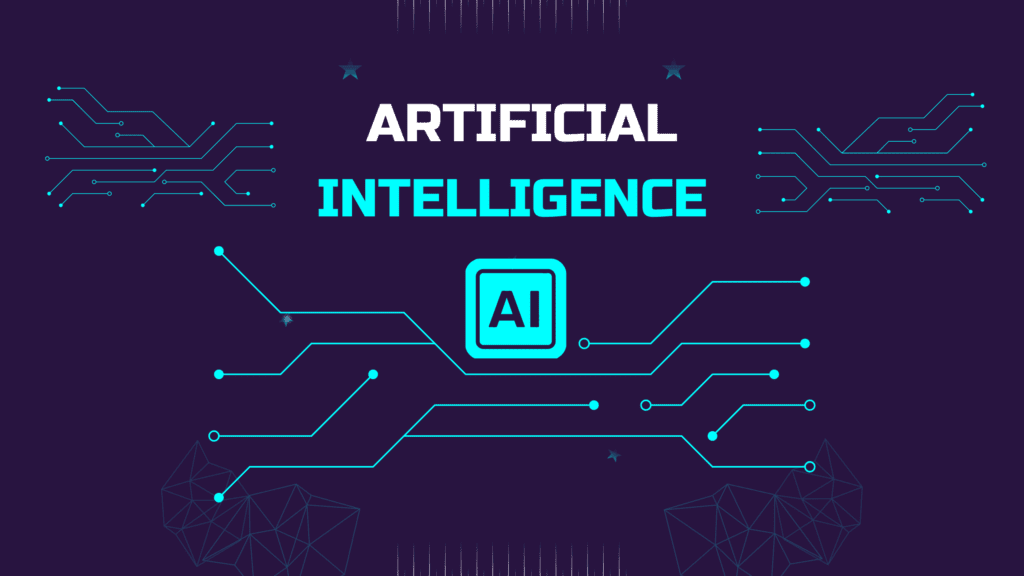

Artificial intelligence (AI) is not just set to alter how we learn—it’s poised to revolutionize how educational institutions operate behind the scenes. From streamlining student enrollment to automating tedious administrative tasks, AI is a tool that universities can harness to enhance their operational efficiency. The impact of AI extends to predicting student success rates and addressing potential challenges before they arise.
Efficient Enrollment Management
AI tools are simplifying the enrollment process, transforming how decisions are made in admissions. These technologies analyze large datasets to identify the most promising candidates, predicting enrollment trends and adjusting strategies dynamically. This approach not only speeds up decision-making but also enhances the accuracy of student selection.
Automating Routine Administrative Tasks
Routine administrative duties often take up significant time and resources. AI technologies provide a remedy by automating these tasks, freeing up valuable staff time for more strategic activities. Scheduling, grading, and even communication tasks like sending reminders can be automated, significantly reducing workload. According to Medium, AI in education can handle repetitive communications and scheduling tasks, enabling educators to focus more on teaching. Schools leveraging products like those listed in District Administration find they’ve improved efficiency, allowing departments to concentrate on transformative educational strategies.
Predictive Analytics for Student Success
AI-driven analytics are invaluable tools for enhancing student success rates. These systems process data to predict student outcomes, identifying those at risk of falling behind and enabling early interventions. By understanding and anticipating future performance, educational institutions can adopt proactive measures to improve retention and graduation rates. Full Fabric explains how predictive analytics are transforming student success outcomes. Moreover, insights from Villanova University highlight how tailored advising services can improve student experiences and results, creating an environment where educational success is expected rather than hoped for.
AI’s role in higher education administration is growing rapidly. Its applications span from solving logistical challenges to enhancing academic outcomes.
Impacts on Curriculum Development
Artificial intelligence is more than just a tool; it’s reshaping higher education curricula. It offers unprecedented opportunities to enrich the learning experience by making it more relevant, responsive, and effective. As AI integrates into educational systems, institutions must rethink how they approach curriculum development.
Data-Driven Curriculum Design
AI serves as a powerful tool in refining and innovating curriculum design. By analyzing vast educational data, AI systems can identify patterns and insights that inform improvements. This data-driven approach to curriculum design ensures education remains aligned with the current needs of our students and future trends.
- Enhanced Decision-Making: AI processes large datasets to highlight what works and what doesn’t in existing curricula, allowing educators to make informed improvements.
- Dynamic Content Updates: Curricula can be continuously updated based on the latest industry developments and student feedback, ensuring relevance and engagement.
For more on how AI impacts curriculum development, you can explore this detailed article on how AI innovations guide educational strategies.
Integrating AI Literacy into Programs
The growing importance of AI literacy cannot be overlooked. As AI technologies continue to advance, students must become familiar with AI concepts and tools to thrive in the future job market. This necessitates the integration of AI-related courses into higher education programs.
- Preparing Future Leaders: Understanding AI equips students with essential skills, enabling them to navigate and lead in AI-driven industries.
- Broadening Career Opportunities: AI literacy expands students’ career opportunities, allowing them to adapt to various roles that require a deep understanding of AI dynamics.
Educators can find insightful strategies for integrating AI literacy in curricula from this framework that delineates effective approaches for broadening students’ expertise in AI technologies.
By using AI to influence curriculum development and integration, higher education institutions can ensure they produce graduates who are ready for the rapidly changing world.
Ethical Considerations and Challenges
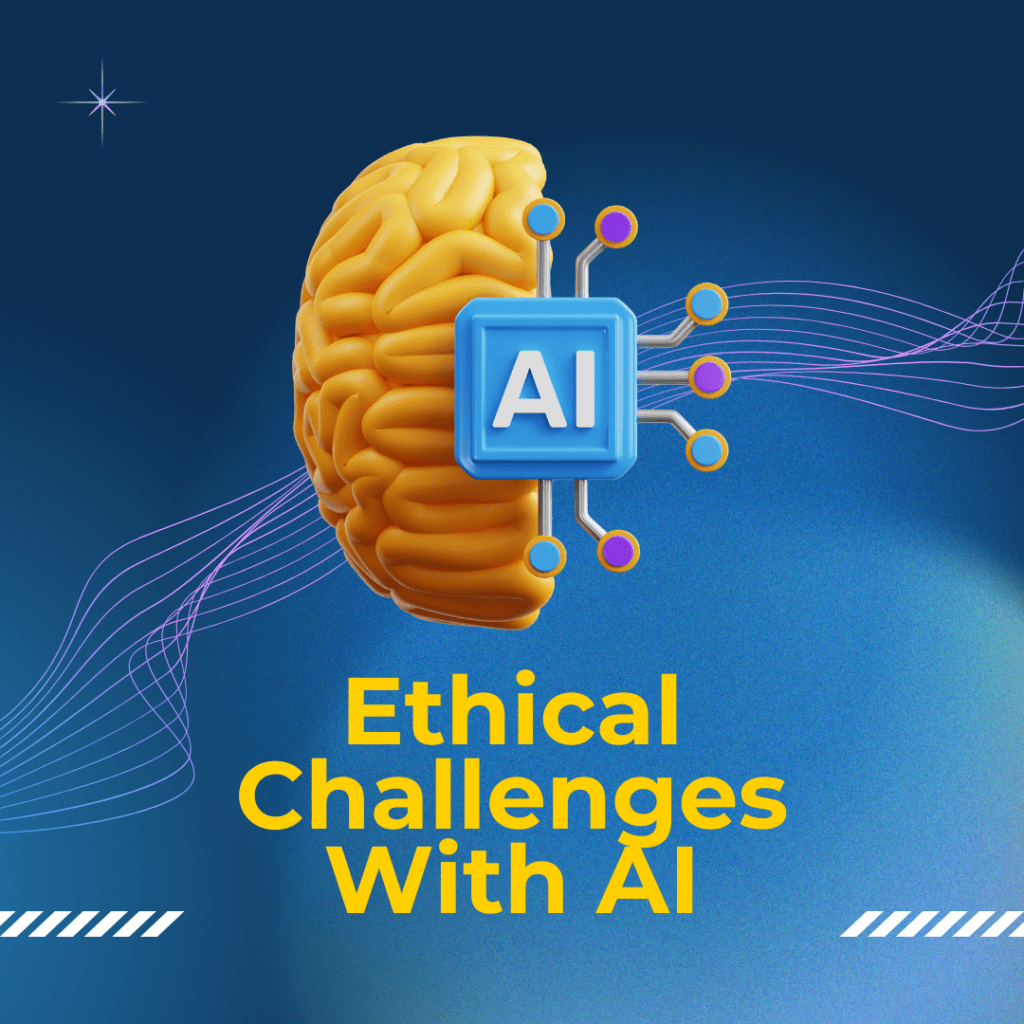

Integrating artificial intelligence into higher education is not without ethical challenges. As AI systems become more prevalent, educators and administrators must navigate concerns surrounding fairness, privacy, and the balance between technology and human interaction. Exploring these challenges provides deeper insights into ensuring AI’s responsible and equitable use in academia.
Addressing Bias in AI Algorithms
Algorithmic bias in AI is a critical issue, particularly in education. These biases can result from incomplete or skewed data sets, leading to outcomes that disproportionately affect certain groups. For example, algorithms might amplify existing disparities by inaccurately predicting student performance, limiting equitable access to educational opportunities. According to Every Learner Everywhere, algorithmic bias can lead to significant disadvantages for minority students.
Consider this: If an AI system uses historical data, which may inherently contain biases, it may continue to propagate these disparities. Ensuring diversity in data collection and regular audits of AI systems are essential steps in mitigating such biases, and fostering a more inclusive educational environment.
Privacy Concerns and Data Security
In the AI-driven educational landscape, safeguarding students’ data is paramount. Schools collect a vast array of personal information, heightening the risk of data breaches. The need for robust data protection measures has never been greater, as highlighted by experts in Fordham Institute.
Think of student data as a fragile treasure securely guarded against threats. Institutions must implement state-of-the-art encryption and data management protocols to protect this information, ensuring compliance with privacy laws and maintaining the trust of students and parents alike.
Balancing AI with Human Interaction
While AI can enhance learning through personalized experiences and efficiency, it must not replace the human aspect of education. The importance of human interaction in learning remains undeniable, as it fosters personal connections and emotional support crucial for student development. Studies, such as those referenced by Canvas LMS Community, emphasize the irreplaceable human touch that educators provide.
AI In Higher Education – Conclusion
Artificial intelligence is redefining higher education. It offers a new opportunity to advance teaching, with personalized learning and AI-driven tutoring systems enhancing student engagement. Simultaneously, AI revolutionizes administration and curriculum development, making processes efficient and intuitive.
Yet, these advancements demand caution. Ethical issues, such as algorithmic bias and privacy concerns, call for significant oversight. The conversation must continue about balancing AI’s benefits with the essential human touch in education.
Educators and institutions hold the responsibility to embrace AI thoughtfully. Share your thoughts and let’s explore together how AI can serve the future of education responsibly.

